In the digital age, a powerful online presence is crucial for the success of any business. A well-designed website not only attracts & engages customers but also enhances user experience and boost sales. And to achieve this, selecting the right web development framework is crucial. Web development frameworks provide a structured and efficient way to build robust and feature-rich websites, ensuring a seamless user experience that keeps visitors coming back for more.
Below we have gathered a list of top 10 web app development frameworks that have grabbed immense popularity around the world this year and can surely help your business reach heights.
Why Deciding Web Development Framework is Crucial for the Success of Your Online Business?

Choosing the right web development framework is a critical decision that can significantly impact your online business. A well-suited framework can offer benefits such as:
- Time Efficiency: Web development frameworks provide pre-built modules and libraries, reducing development time and accelerating time-to-market for your website.
- Scalability: The right framework lays a strong foundation for your website’s growth, ensuring it can handle increasing traffic and functionality as your business expands.
- Security: Many frameworks incorporate built-in security features, protecting your website from potential vulnerabilities and cyber threats.
- User Experience: Frameworks with intuitive tools and features facilitate the creation of user-friendly interfaces, elevating user experiences on your site.
- Community Support: Popular frameworks usually have active and vibrant developer communities, providing valuable resources, updates, and solutions to problems.
Top 10 Web Development (front-end/back-end) Frameworks to Consider in 2023
Angular
Developed by Google, Angular is a powerful front-end framework suitable for building dynamic single-page applications (SPAs). Here we have demonstrated the pros & cons of this innovative framework. It would help you to choose wisely.
React
Backed by Facebook, React is a flexible and efficient library for building interactive user interfaces, making it an excellent choice for dynamic web applications. Here are some pros & cons of using React for your website.
Vue.js
Vue.js is gaining popularity for its simplicity and adaptability, offering seamless integration and quick development. Consider these pros & cons before selecting Vue.js for your website.
Express (Node.js)
For server-side development, Express.js is a lightweight and flexible framework built on Node.js, perfect for developing scalable web applications.
Ruby on Rails
Known for its simplicity and convention over configuration, Ruby on Rails offers rapid development and follows the DRY (Don’t Repeat Yourself) principle.
Django
Django, a Python-based framework, emphasizes high-level functionality and promotes rapid development with a robust set of tools.
ASP. NET
A Microsoft framework, ASP.Net enables developers to create dynamic and feature-rich websites and applications for Windows-based environments.
Spring
Built on Java, Spring provides a comprehensive ecosystem for developing enterprise-level web applications with ease.
Meteor
Meteor.js is a full-stack JavaScript framework that allows for real-time web development, making it ideal for collaborative applications.
Laravel
Laravel is a PHP framework known for its elegant syntax and extensive feature set, simplifying complex tasks and boosting developer productivity.
Final Thoughts
So, now when you know the most popular web app frameworks, it’s high time to consider one for your next web project. Selecting the right web development framework is a vital step in ensuring the success of your online business. By choosing the framework that aligns with your business objectives, scalability needs, and development expertise, you can build a website that not only meets your current requirements but also grows alongside your business.
Why Choose QSS for Your Web Development Needs?
At QSS Technosoft, we are passionate about delivering exceptional web development solutions tailored to your specific business goals. Our team of experienced developers is well-versed in working with a wide range of web development frameworks including Angular, React, Java, JavaScript, Python, .Net, Node, etc. With a focus on innovation, scalability, and user experience, we take pride in delivering web development solutions that set your online business on the path to success.
We are proud to mention that our work has been recognized by leading B2B reviews and research platforms like GoodFirms, Clutch, MirrorView, and many more.
Let’s connect to discuss more about the best frameworks that can accelerate the growth of your new web project.


10 Best Web Development Frameworks to Skyrocket Your Online Business